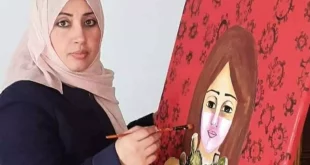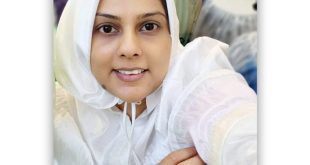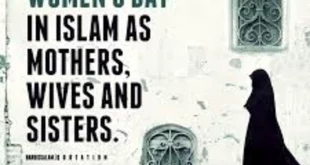I’ve often said Islamophobia is the last refuge of the racist and it can manifest itself in many forms.
Sometimes it is right in your face, erupting into physical violence or verbal abuse while at other times the attack can be almost subliminal, thinly veiled, cloaked in ambiguity. The net result is the same, in as much as the victim of Islamophobia often suffers in the same way as a victim of racism. It is painful, humiliating, and deeply hurtful.
The usual image conjured in the mind of such a purveyor of this sort of hate is the stereotype of a thickset thug wearing an England t-shirt with his sovereign covered knuckles trailing the pavement.
I’ve had several encounters of this kind. Happily none of the threatened violence has followed through, although I must admit the occasional death threats are a bit unsettling.
I hate to play the role of the victim so most times I try to walk on by and ignore some of the more demonic rants or outbursts from bigots who are infuriated by the sight of a European-looking woman wearing a hijab.
And I have to say, most times I manage to rise above their crass stupidity, often resisting the attempt to correct their appalling lack of English grammar.
Even one time I afforded myself a wee smile as a legless tramp (not disabled, merely so drunk he couldn’t stand) snarled from the curbside: “Why don’t you go back home?”
I was with an Arab friend on my way to the House of Commons from St James Park. I swung around and replied in an exaggerated Geordie accent: “I’m off to Newcastle tomorrow, Pet — but just for the weekend.” His face was a picture.
But, at the end of the day, it is unsettling and frightening, and upsetting for women to be targeted for their style and choice of dress.
It is something that is often raised when I meet other Muslim women in the UK who are trying to rise to the challenge of following their faith while attempting to blend in with the rest of society. Unless we remove our hijabs, nikabs, and headscarves, we Muslim women can not simply blend in, and why should we? I have as much right to cover as any woman has to wear an outfit regarded as revealing.
The cruel jibes and lack of tolerance and understanding has driven some Muslim women to remove their hijabs, placing them in direct conflict with their religious obligations.
Having experienced such venom and hostility firsthand, I find it very difficult to criticize those women who are too afraid to wear their hijab because of the bullies.
My hijab is part of my business suit, it tells the world I’m a Muslim woman, someone to be taken seriously, and I expect to be treated with the same respect as anyone else.
In exactly the same way that a Sikh chooses to wear a turban or an orthodox Jewish woman also chooses to cover her head.
Since I began wearing the hijab after embracing Islam, I’ve had many challenges, some of them pleasant, others deeply unpleasant.
Just the other day, a very close barrister friend of mine invited me to a swish cocktail party overlooking the River Thames to celebrate her well-earned elevated status to Queen’s Counsel.
I don’t mind telling you I was nervous, not least of all because I knew I would probably be the only hijab in an eclectic group of people from media and legal circles.
I felt deeply self-conscious as I approached the room, took a deep breath and strode in. There was a sea of strange faces and so it was with great relief I spotted the host and bounded over to her.
Obviously this was her night and I couldn’t monopolize her company for long as others were queuing to congratulate her well-deserved position.
Then, to my relief, I spotted an old friend from my days on The Observer. Let’s call him Nick Cohen for that is indeed his name.
There he was standing, glass in hand, holding court just as I remembered him although now follicly challenged and with a paunch.
I bounded over, grinning from ear to ear, to say hello to my old buddy, and giggled as I remembered a brief encounter we had in a watering hole next to The Observer.
But my joy at seeing an old mate (it had been more than five years) was short-lived as I said hello.
He squinted his eyes as though trying to focus and swooped down his head without his shoulders moving. “Who are you?” he bellowed.
I laughed and said: “Yvonne.” And with that he jerked his head forward a few inches, slightly tilting it to one side. “I’m sorry I don’t know you,” he shouted in an abrupt manner.
“Nick, it’s me, Yvonne. Yvonne Ridley!” I exclaimed, but by this time my smile was rapidly fading, although I tried my best to fix my grin.
He twitched and his head moved slightly to the other side like some predator about to swoop for the kill. “What on earth have you done with your hair, where has your hair gone?” he demanded.
By this time, those around him began to shuffle uncomfortably while I just stood there rooted to the spot.
Grin still fixed, I retorted: “Well I might ask the same of you Nick. What’s happened to your hair?”
He then swooped back up, stung by the unexpectedly swift response and continued his conversation with those around him. There I was, left standing like a bag of pork scratchings at a Ramadan feast.
Some kind observer nearby came to my rescue and we began talking — in truth I was so aghast I really can not remember much about the conversation.
In short I was deeply upset.
My old pal had turned on me in the most vicious way. I was told by mutual friends he had not approved of my conversion to Islam though he never told me himself.
I remember even crediting him from my Trafalgar Square platform and referring to him as “my friend Nick Cohen” much to the annoyance of some of the people on the same platform.
Over the years, I have sent him a few emails and left a couple of messages on his voicemail, but just thought he must have changed numbers when there was a lack of response.
I knew we’d bump into each other again because the media village is small, so I wasn’t unduly perturbed by his silence, but I will admit that when we finally caught up I was staggered and deeply hurt.
Nick Cohen is not a racist, and I know he doesn’t dislike women — some would say quite the reverse — so what has changed?
I hold the same political views as I did before and I still pray to the same God, having moved from Christianity and St. James Church in Piccadilly to Islam and Regent’s Park Mosque.
The cigarettes and alcohol have gone since I became a Muslim, but what else has changed? I am still a journalist writing for titles as diverse as The Washington Post to the Tehran Times.
So all I can assume is that our friendship has come to an end because I am a Muslim and wear a hijab.
Why else would he want to try to humiliate me in such a way? I remember Nick as being funny and clever, but never cruel and offensive.
I am very sad because I feel I have lost a good friend — because I did consider him a friend.
What a pity he didn’t have the bottle to tell me he disapproved of my faith, but had too much bottle that night to remember our friendship.
Now there’s a sobering thought.
Post Disclaimer | Support Us
Support Us
The sailanmuslim.com web site entirely supported by individual donors and well wishers. If you regularly visit this site and wish to show your appreciation, or if you wish to see further development of sailanmuslim.com, please donate us
IMPORTANT : All content hosted on sailanmuslim.com is solely for non-commercial purposes and with the permission of original copyright holders. Any other use of the hosted content, such as for financial gain, requires express approval from the copyright owners.
 Sri lanka Muslims Web Portal Diversity and Inclusiveness
Sri lanka Muslims Web Portal Diversity and Inclusiveness




Nothing should shake a true believer. Allah’s blessing and protection is there for those who walk in the path of Allah and great reward is awaiting Insha Allah
Allmighty Allah is our best friend. He is with us Night and Day and every step of the way. May Allah bless you with his special friendship and protect you from the Trials and Tribulations of this world.